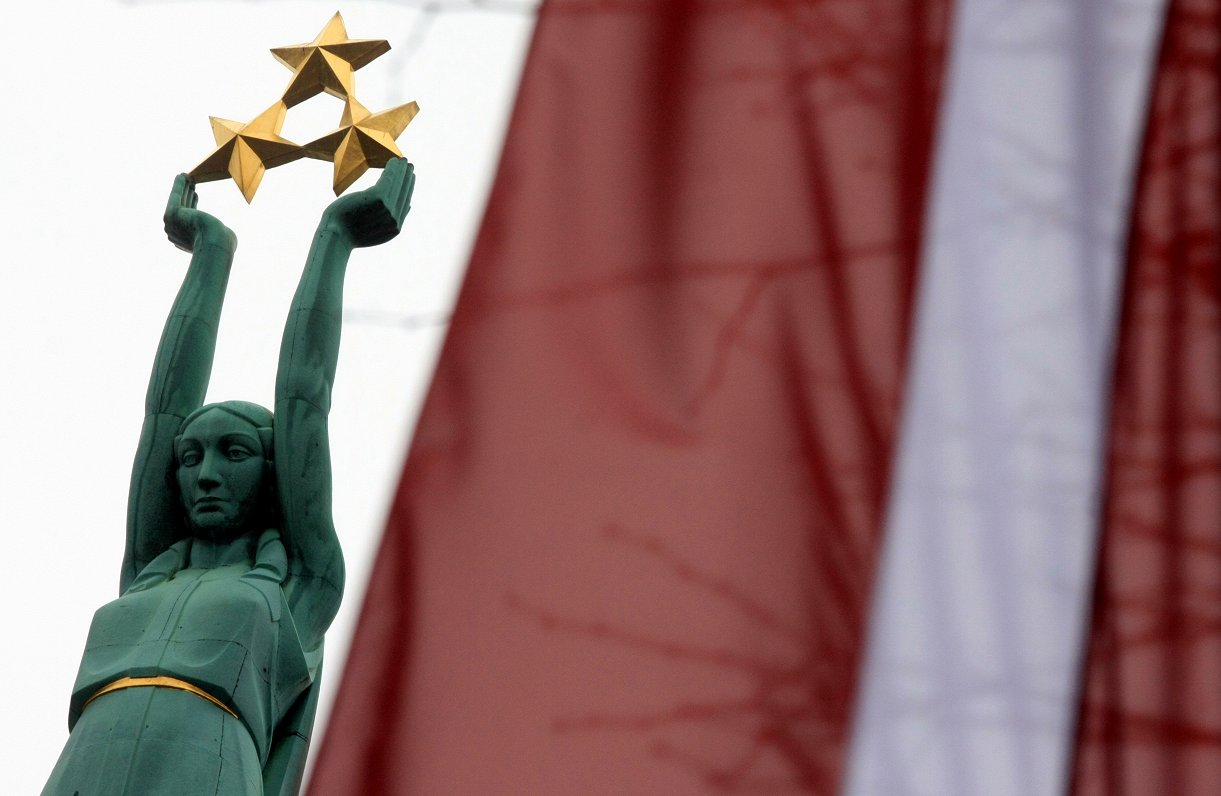Latvia joined the and the EU and the North Atlantic Treaty Organization (NATO) at almost the exact same moment, in spring 2004. Fast forward fourteen years, and despite significant growth, part of the people consider their own country a second-rate laggard. Membership in the influential world alliances is considered purely on practical, down-to-earth terms: EU is safety, NATO is security. It's just the two basic steps on Maslow's hierarchy of needs.
Above these are social needs, or belongingess, with self-actualization is at the very top. People rarely mention this in surveys: that our biggest benefit is being part of the Western civilization. Latvia has never had as much potential for self-actualization as now.
Founded with belief in Western democracy
Many have considered Latvia a historical accident, or even a mistake. With our will, we've made it an inevitability. In 1918, Latvia was founded with belief in Western democracy. It can be said our way towards Europe and NATO did not start in the 1990s; it started with the people who founded the country. During pivotal events of the 20th century, Latvia always lacked a place at the world's negotiating table, but not for lack of will.
Western allies did help Latvia during the Freedom Battles, to be sure. Nevertheless it was not because they believed in its right to independence, bur rather that a democratic Latvia would be a buffer zone against communist Russia. When Latvia was already free, the West delayed recognizing its independence for another year, waiting until Tsarist Russia rises again and gives its verdict on whether Latvia can be free. In 1939 and 1940 as well, the West preferred Russian to Latvian interests. Just 22 years of independence could indeed have been an accident in history's long, meandering course.
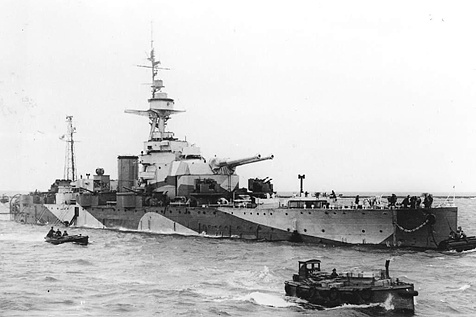
Latvia persevered in the state of something like a reverse coma, with a dead body but of sound mind. Our envoys in the West, the local elite during the Nazi occupation, as well as the national partisans made the world remember that there's still a Latvia to be reckoned with. This was not enough to stave off occupation, because the Russian bear was an ally in the war against the Nazis, but at least the West agreed to call it what it is: an occupation.
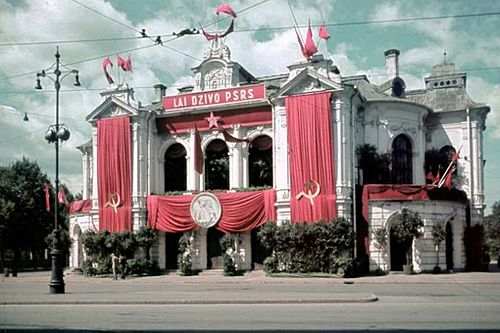
In 1939 and 1940, the West preferred Russian to Latvian interests. Just 22 years of independence could have indeed been an accident in history's long, meandering course.
The exiles staged protests; the dissidents went to jail; but one didn't have to be a dissident to feel the undercurrents among the public. Almost every home had someone who could recall the old times. My family had a picture of a little girl standing by the Freedom Monument and waving a Latvian flag. It's my mother, and the picture is dated May 15th, 1940. They were the generation that suffered the most. When Latvia fell, they were mere toddlers. By the time the country was born anew, they were already retired.
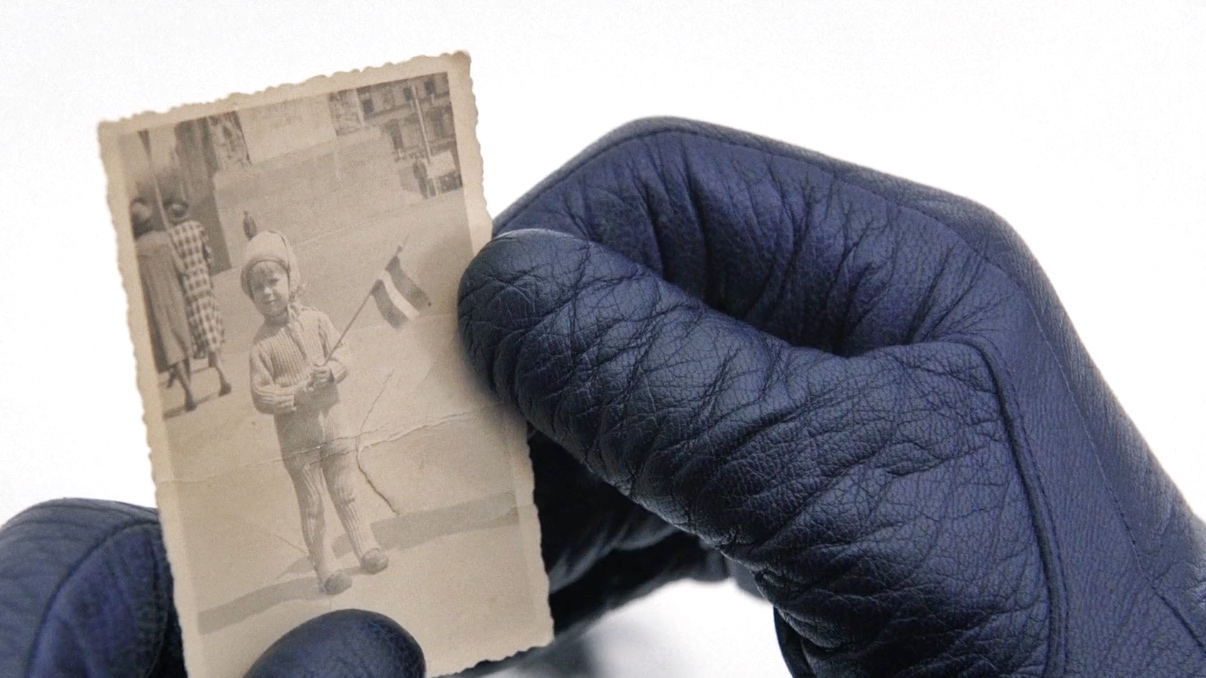
I had my first shock of life abroad when it was still the Soviet era. Finland, 1986. The Pioneer Palace dance ensemble visited Pori, a sister town to Soviet Rīga. We took the train through Leningrad. It took us at least 24 hours. Finland amazed us: we saw beautiful sneakers -- with touch fasteners! -- piled into a basket at a supermarket. A Pioneer's dream! Each of us bought a pair. The label read, "Be free".
In 1990 and 1991 the West was not eager to admit that the Baltics have a right to be free. Once again, they awaited what Big Brother would say. Gorbachev was the friend of the West, as he gave them Eastern Europe. But not the Baltics. Only when Gorbachev lost influence and the newly-fledged Big Brother, under Boris Yeltsin, recognized the Baltics, did the West follow suit.
Nine years towards accession
My first journey to the West in free Latvia was to Paris in 1994, by bus. It was very expensive to fly, and at any rate there were no direct flights. Rīga served only eight destinations. Once a week to Helsinki, daily to Copenhagen and Stockholm. Moscow was the most popular destination, which was served twice a day.
The bus was a jalopy. It crashed near Berlin, so I had the good fortune of staying there for a day as well. But what I remember best was the border between Lithuania and Poland. The queue seemed endless, and you had to wait there for a day, or sometimes two or even three. There was a forest nearby, but other than that it was all white as far as the eye can see, with copious amounts of paper towels and human excrement.
Just two years later the Schengen zone became operational. Latvia joined it in 2007. Today it is the norm. Within a few hours, you can go to Brussels or visit your grandchildren in Dublin, all for a couple dozen euros.
When Latvia started becoming closer to the EU, the union was only in a fledgling state. It was only in 1995, when Latvia formally applied to join the EU, that Finland, Sweden and Austria joined.
Nine years had to pass from the time we applied for us to become a member state. The official talks that lasted from 2000 to 2002 were the most intense part of this stretch. In 2003, we voted in a referendum that we want to join. We were formally accepted on May 1, 2004.
It was the biggest enlargement in EU history, with seven new members joining. Since then, Latvia has grown fastest in its history.
It's as if we've forgotten the wretched poverty in which we started rebuilding our state.
Of course, rattling numbers may be annoying, but... in 1992, the average wage in Latvia was €30 after tax. The minimum wage was at €3, and was raised to €10 at the end of the year.
Within 25 years, the average wage has grown 25 times, reaching €744 after tax in 2018. Latvia is still one of the poorest member states, but this lag is decreasing rapidly. In terms of GDP at Purchasing Power Parity, Latvia is just 1/3rd behind the EU average.
Decades of flirting with NATO
NATO was quick to establish ties with the Baltics in a bid to extend the alliance's sphere of influence after the USSR fell. While entering the EU was unilaterally volitional, NATO actually showed initiative with Latvia as this is a strategically important region to the alliance.
Nevertheless, talks lasted even longer than with the EU. Russia objected to having NATO guns by their border; while Latvia was not ready to boost its defense budget, which was laughable by the late 90s, with heating problems routine across the army, not to mention having adequate combat equipment.
There was a risk that Latvia would become the only Baltic state not to be accepted into NATO.
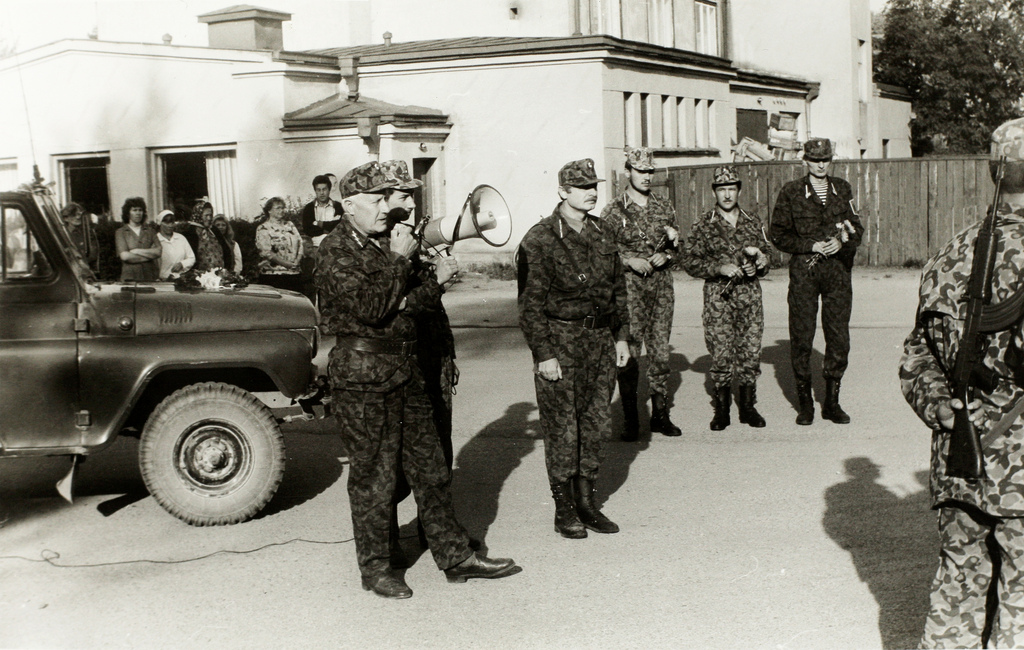
By now, however, we're an example to the rest of the alliance. In 2000, Latvia raised its defense spending to 1% of GDP and has since increased it to the 2% required by NATO. Only Latvia, Estonia, Greece, the UK and the US spend as much across the entire alliance.
Finally, in 2002, the Baltics had done their homework and, during the Prague summit, received an official invitation to join NATO. The talk by Vaira Vīķe-Freiberga, our president, was the summit's best.
"Our people have been tested in the fires of history. They have been tempered in the furnaces of suffering and injustice. They know the meaning and the value of liberty. They know that it's worth every effort to support it, to maintain it, to stand for it, and to fight for it," she said.
Vīķe-Freiberga lost her homeland when she was a child. At the time when the NATO was established, she lost her sister at a refugee camp.
Sandra Kalniete, Foreign Minister from 2002-4, saw her homeland first as a child as she was born in Siberia. Her parents were deported the same year when NATO was established. It was the second deportation her mother would face.
And in 2002, the two women were sitting at the same table with representatives of the world's most powerful nations.
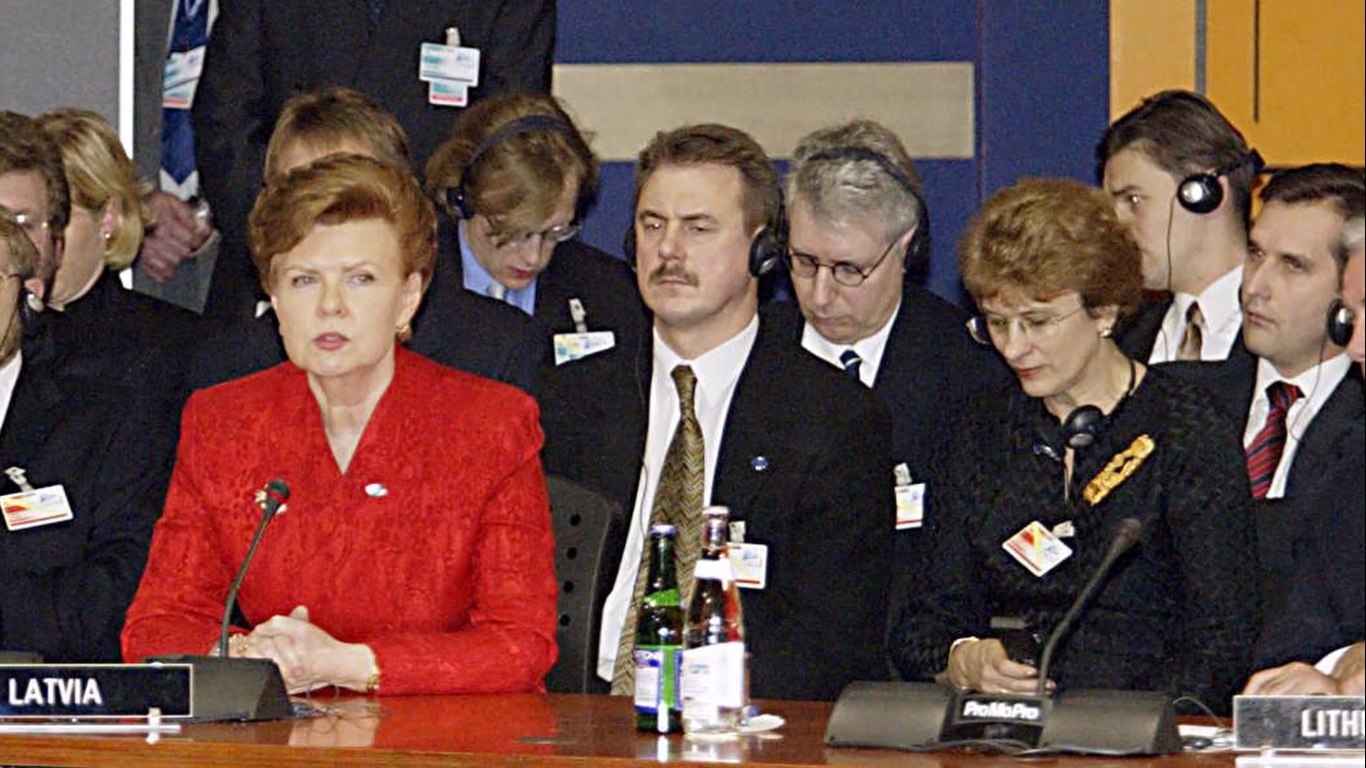
"We make a solemn pledge and commitment here, today, on this historical and solemn occasion, that we will strive to our utmost to do our part, to contribute not just to the strength of the alliance but to do whatever needs to be done to create a world where justice and liberty are available to all," said Vīķe-Freiberga.
